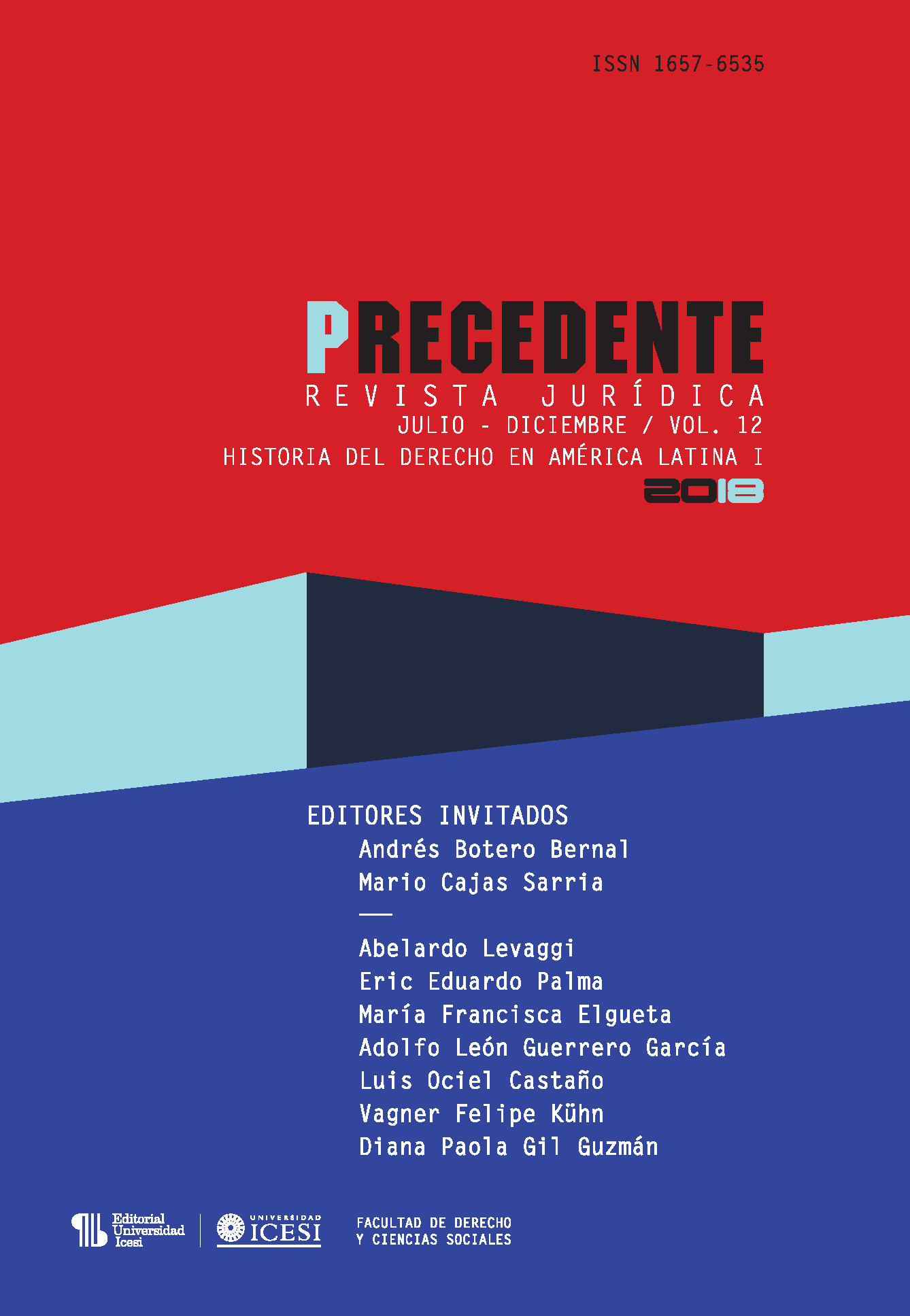Regime of moratoria in the argentine provinces from Salta (1825) and Tucumán (1861)
DOI:
https://doi.org/10.18046/prec.v12.2648Keywords:
Trials of waiting and acquittance, Merchants of good and bad faith, Independent time, Salta, Tucumán.Abstract
Among the benefits of merchants, according to the Regulations of the Consulate of Bilbao from 1737, were waits and acquittances. The fraudulent bankruptcies were not included. The debtor could extrajudicially deal with creditors and then present to the judge or ask the judge that he would meet the creditors and thus deal with them. In both cases the majority decision could force the minority. This system was discussed after the independence. The reason was to protect honest merchants affected by war and other misfortunes, but also to avoid bad faith. The argentine province of Salta (also Buenos Aires and Tucumán) was an example of this situation.
Downloads
Downloads
Published
Issue
Section
License
Copyright (c) 2018 Abelardo Levaggi

This work is licensed under a Creative Commons Attribution-NonCommercial 4.0 International License.
Material in this publication may be reproduced without authorization, provided the title, author and institutional source is acknowledged.








